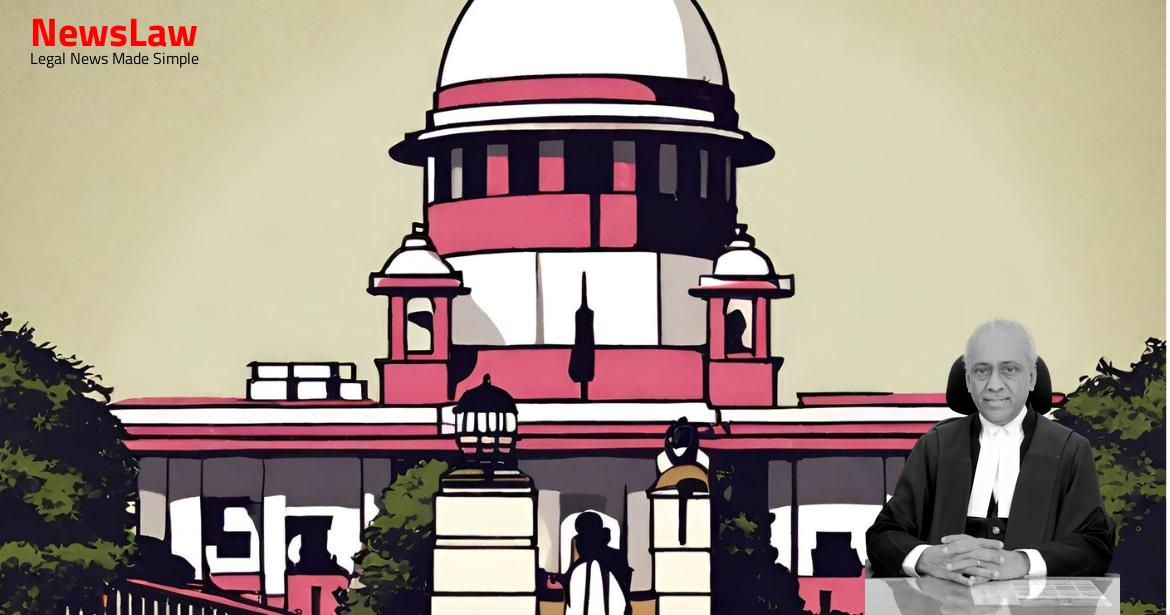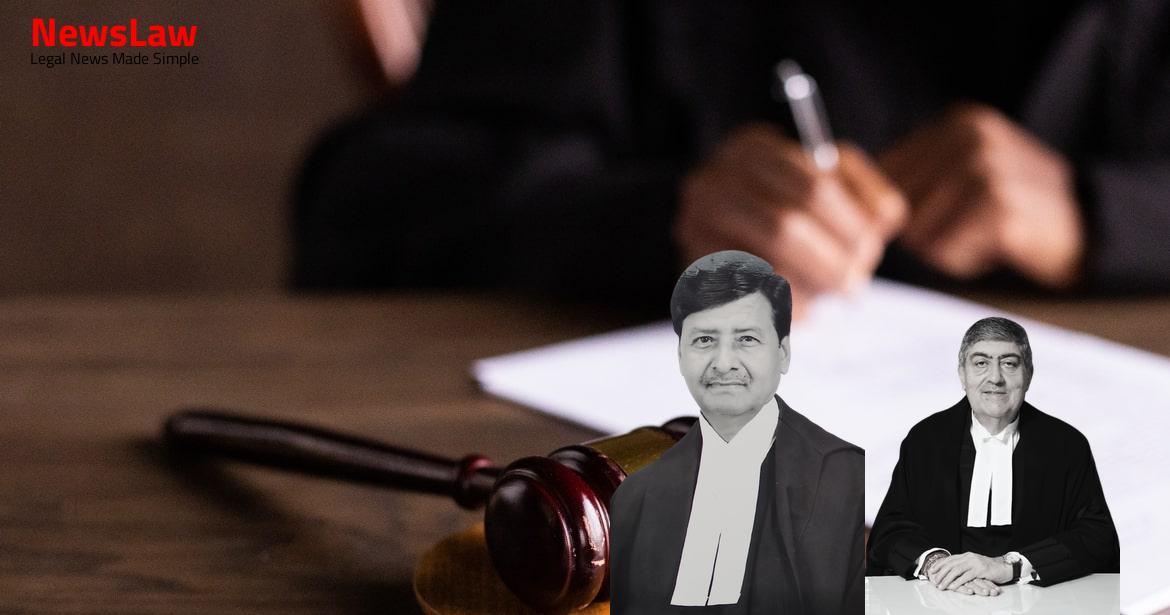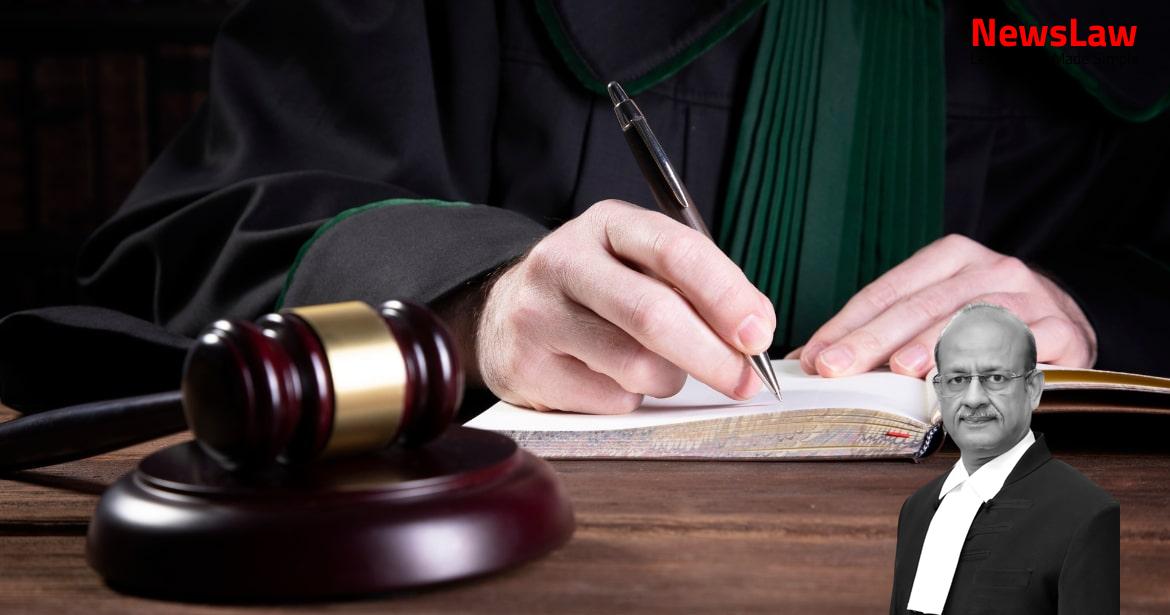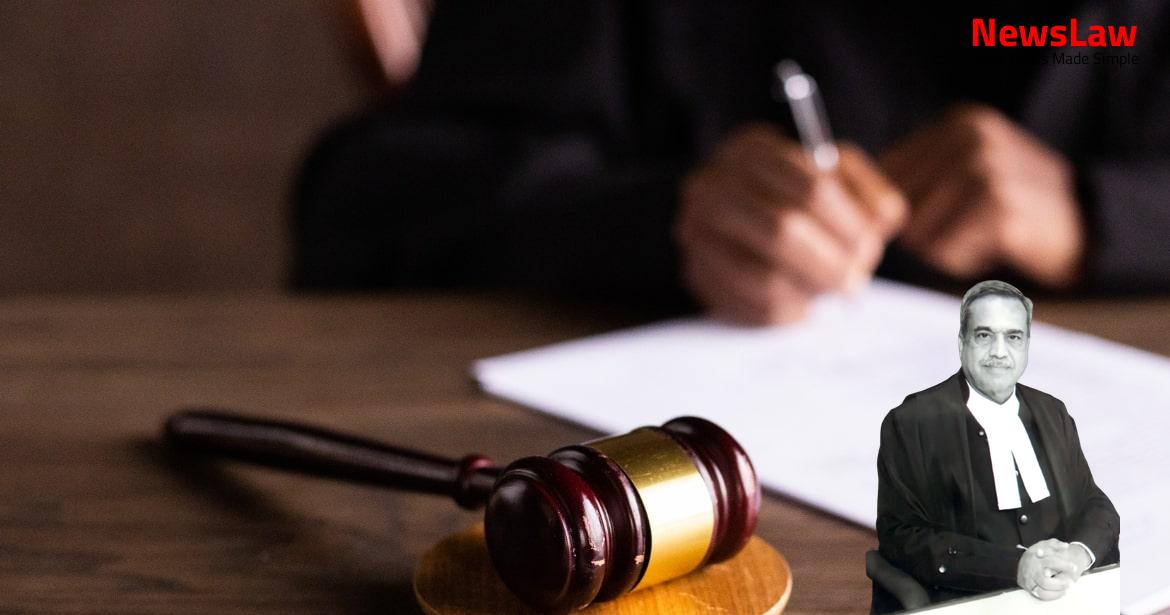Delve into a comprehensive examination of the legal analysis surrounding the quashing of criminal proceedings in corruption cases. This blog focuses on the court’s in-depth scrutiny and evaluation of the matter, shedding light on the intricacies of the law in such complex scenarios. Stay tuned to grasp the essence of the court’s legal perspective on handling cases involving corruption and abuse of official positions.
Facts
- Worker in the Technical Wing of the Factory of Metropolitan Transport Corporation filed a complaint about promised jobs in exchange for money
- Accused individuals included Senthil Balaji, Ashok Kumar, Shanmugam, and Raj Kumar
- Accused individuals were indicted for alleged offences under Sections 406, 409, 420, 506(1) of the Indian Penal Code
- Final report filed by police against accused
- High Court quashed the criminal complaint in CC No.25 of 2021 based on compromise between victims and accused
- Details of payments made and promises of job appointments were highlighted in the complaint
- Several legal petitions and motions filed by various parties related to the case
- High Court noted that the offences were not compoundable
- High Court referenced guidelines from previous cases for quashing the complaint
- P.Dharamaraj filed a special leave petition regarding a cash-for-job scam
- Anti Corruption Movement sought recall of the order which was rejected by the High Court
- Anti Corruption Movement filed two special leave petitions challenging the original order and the rejection order
- All 13 victims appeared before the High Court and claimed that issues were resolved with the accused
Also Read: Undisclosed Conviction for Dharna Under Police Act Leads to Overturned Election
Arguments
- Shri Mukul Rohtagi argued that the decision in Sanjay Tiwari case is not applicable to the current case.
- The appellants were argued to have no locus standi to interfere with the proceedings initiated by individual complainants.
- Shri C.A. Sundaram contended that the appellants are acting on behalf of political rivals to undo a compromise reached between complainants and accused.
- Shri Prashant Bhushan argued that the prosecution failed to include offenses under the P.C Act in the charge-sheet, and the High Court’s decision hindered the Court’s opportunity under Section 216 of the Cr.P.C.
- Shri Rakesh Dwivedi supported the High Court’s decision, stating that the victims’ statements did not warrant prosecution under the P.C Act.
- Shri Manan Kumar Mishra claimed that the appellants’ objective was to harass the Minister and engage in witch hunting.
- Shri S. Prabhakaran highlighted the background of the Minister and the revolts within the political group.
- The objection regarding the locus standi of the appellants was rejected by Justice V.R. Krishna Iyer, stating that it lacked merit.
- The counsel representing the respondents could not dispute the right of a victim to appeal the High Court’s order.
- The appellants are accused of targeting the Minister based on the compromised complaint.
- Persons who participated in the selection process but could not make it to the final list on account of corrupt practices are considered victims
- The appellant in one of the appeals is deemed a victim as he was unable to get selected due to corrupt practices
Also Read: Critical Analysis of Legal Principles in a High-Profile Criminal Case
Analysis
- The High Court erred in quashing the criminal complaint filed by respondent No 2, who had no locus in the case.
- The nature and gravity of the crime must be considered before expediting trials, especially in cases involving corruption and abuse of official position.
- The Court cannot entertain cases involving corrupt practices like financial fraud or economic misdemeanour under the guise of public interest litigants.
- The involvement of corrupt practices in securing employment in the Transport Corporation falls under two categories: (i) those who paid money and got orders of appointment, and (ii) those who paid money but failed to secure employment.
- An application under Section 482 Cr.P.C. from a person not connected to the criminal proceeding or trial cannot ordinarily be entertained by the High Court.
- Quashing criminal proceedings based on a settlement is not permissible if the offences have an impact beyond the accused and the complainant.
- Corruption by a public servant is an offense against the State and society, affecting public services rendered by appointees engaging in corrupt practices.
- The High Court’s quashing of criminal proceedings based on a compromise was inappropriate due to the seriousness of corruption involved.
- Exercising jurisdiction to quash criminal proceedings based on settlements must consider the impact of the offenses on society and the financial or economic system.
- The High Court should not quash criminal proceedings involving corruption or offenses by public servants based on compromised settlements.
- The Court must ensure that all criminal trials are conducted expeditiously for justice to be delivered if the accused is found guilty.
- Interim applications filed related to the case should also be considered in the overall analysis of the matter.
- In B.S. Joshi and Nikhil Merchant, the High Court’s decisions were overturned by a two-Judge Bench of the Supreme Court.
- The case of State of Maharashtra through Central Bureau of Investigation vs. Vikram Anantrai Doshi and Others involved criminal proceedings for offences related to failure to repay loans given by Banks.
- In cases of economic offences affecting the State’s financial well-being, trials should continue in the public interest.
- Exceptions to quashing criminal proceedings include economic offences and serious crimes like murder or dacoity.
- The High Court may quash criminal proceedings based on settlements if a conviction is unlikely, and continuing the trial would be oppressive.
- The Court must ensure the criminal proceeding’s continuation serves justice and is not an abuse of the legal process despite settlements between victim and offender.
- A third party typically lacks the standing to challenge criminal proceedings.
- Power to quash criminal proceedings based on settlements may not apply to cases like murder, rape, or dacoity.
- The Supreme Court emphasized the distinction between the power to quash proceedings and the power to compound offences under Section 320 of the Code of Criminal Procedure.
- The definition of the word ‘victim’ was inserted in Section 2(wa) of the Cr.P.C. by Act 5 of 2009.
- The impugned order of the High Court is unsustainable in light of the stated facts.
- Putting the prosecution under the P.C. Act on hold can have disastrous consequences.
- The State should have conducted a comprehensive investigation into the entire scam instead of allowing the accused to manipulate the situation.
- The order passed by the Madurai Bench of the Madras High Court in previous cases does not hold relevance in the present complaints.
- An SLP filed against the order of those petitions was dismissed by the Supreme Court, indicating it does not set a precedent.
- No orders are passed on the prayer for constituting a Special Investigation Team at present.
Also Read: Legal Analysis on Specific Performance Obligations in Land Sale Agreement
Decision
- The criminal complaint is restored to file.
- The Special Court is directed to proceed on the merits of the case and the law, not swayed by previous observations.
- The Investigating Officer (I.O.) is instructed to file a further report under Section 173(8) of the Code based on previous observations.
- If there is reluctance from the State/I.O., the Special Court may use power under Section 216 of the Cr.P.C.
- The State is urged to take steps to vacate stays on two other cases under the P.C. Act.
- A Special Public Prosecutor should be appointed by the State to address the case effectively.
Case Title: P. DHARAMARAJ Vs. SHANMUGAM (2022 INSC 940)
Case Number: Crl.A. No.-001514-001514 / 2022



